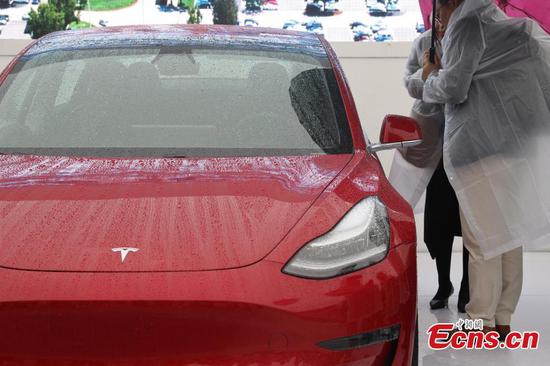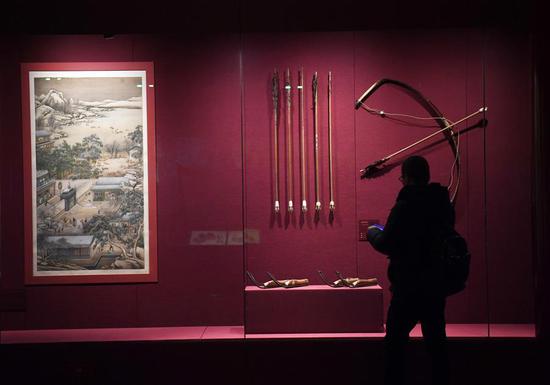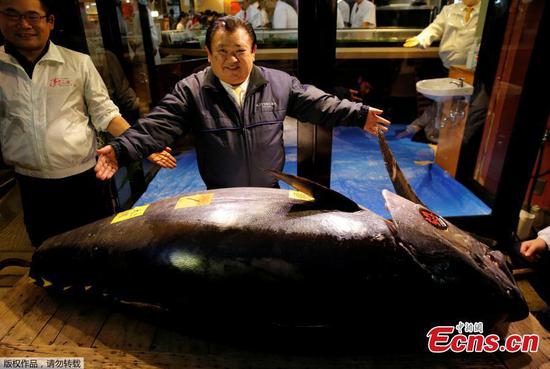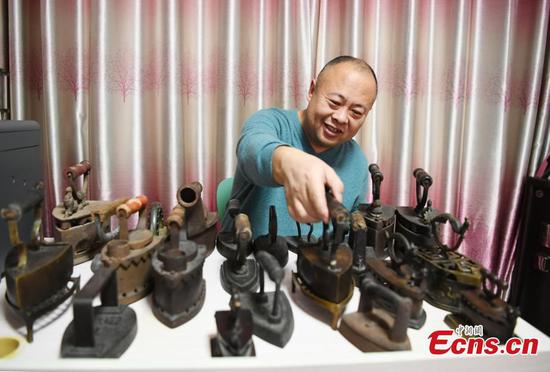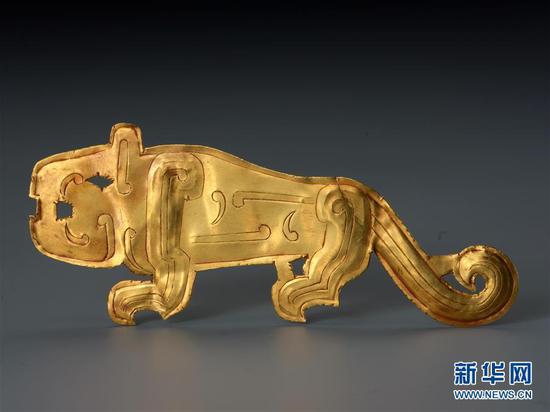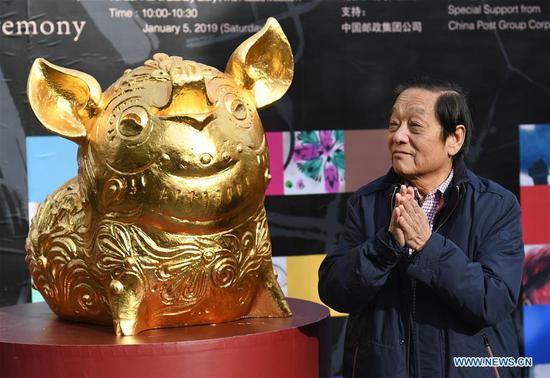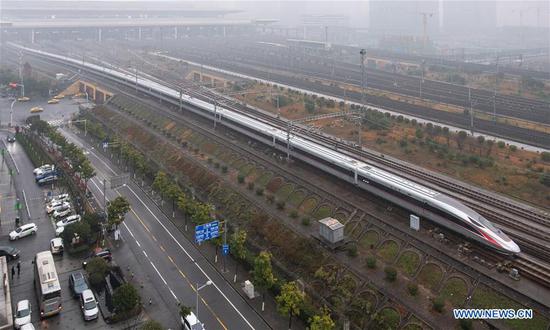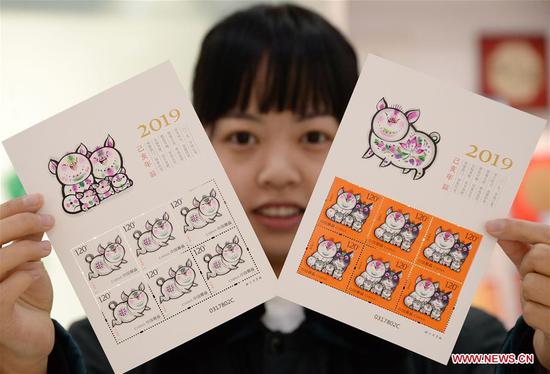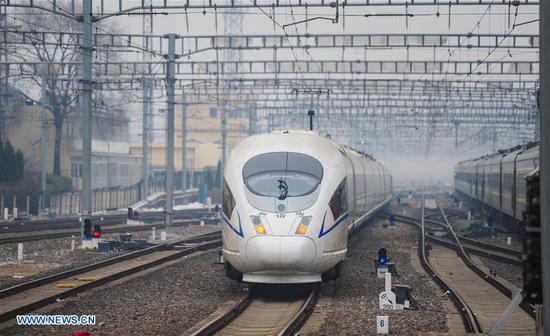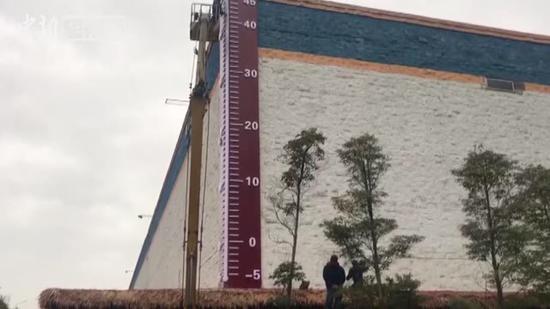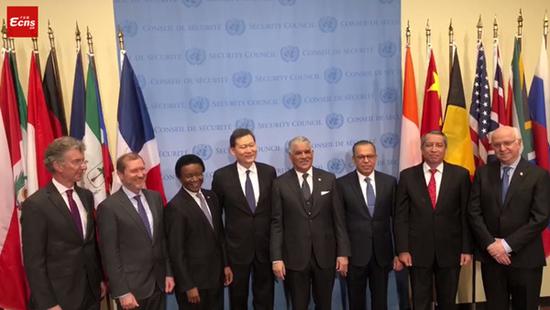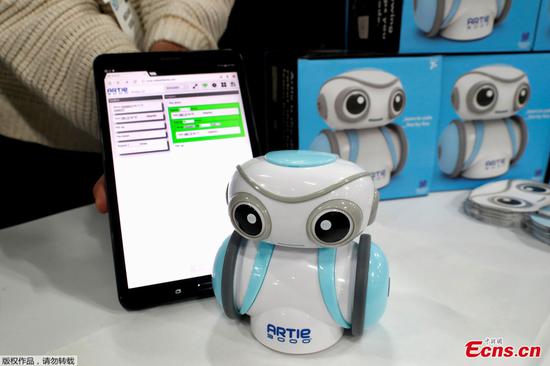
An Artie 3000, a basic coding robot for kids by Educational Insights, is displayed at "CES Unveiled" during the 2019 CES in Las Vegas, Nevada, U.S. January 6, 2019. (Photo: Steve Marcus/REUTERS)
Chinese companies attending the annual Consumer Electronics Show (CES), which will open in Las Vegas on Tuesday, will not only launch new products, technologies and applications during the four-day extravaganza, but push for more cooperation with international counterparts.
Global companies, including those from the United States, will keep tapping the lucrative market in China by teaming up with key industry players in the world's second-largest economy.
According to a survey jointly conducted in November by cloud-based tech company the Trade Desk and Forbes, among 200 chief marketing officers across global companies with more than $500 million in annual revenue each, about 80 percent said they would increase their marketing investments in China over the next 12 to 18 months.
China represents a major opportunity to build a global customer base and tap into a new source of revenue, the survey results indicated.
According to the Statistical Report on Internet Development in China and the National Development and Reform Commission, there are around 772 million internet users and a burgeoning middle-income group of around 400 million people in China.
Karen Chupka, executive vice-president of the Consumer Technology Association, said last week in San Francisco that about 4,500 exhibitors and 180,000 individuals from around 155 countries and regions will attend the CES this year.
Among the 900-plus Chinese companies that will be at the CES, the majority of them are based in southern China - Shenzhen, Dongguan and Guangzhou - the dynamic and thriving forefront of China's opening-up and reform that started 40 years ago.
Many of them remain highly visible in areas such as foldable devices, drones, electronic vehicles, smart homes and cloud computing.
On the 255,500 square meters in exhibition space at the CES, companies will showcase technology, innovation and services in a spectrum of fields such as 5G and the Internet of Things, automotive, robotics, artificial intelligence, smart cities, and several new sections, including medical products, tourism and e-sports, said Steve Koenig, CTA's vice-president of research.
Bill Liu, founder of Royole Corp, a Shenzhen-based manufacturer of flexible displays, will bring FlexPai, the company's newly launched, large-screen foldable device, to entertain CES consumers. Functioning both as a smartphone and tablet, FlexPai was released in October in Beijing. The device is equipped with a 7.8-inch high-resolution screen, which is 7.6 millimeters thick and can be bent more than 200,000 times.
Liu said he hopes the company's ultra-thin, transparent and flexible electronics, including displays and sensors, will help reshape the future of smart-home, automotive, consumer electronics and wearable products.
"It has been the fourth year for us to attend the CES," said Liu. "We hope to demonstrate our foldable devices and solutions to global audiences and clients through the platform of CES. Ultimately, more companies could adopt our technology and add value to their products and services."
DJI, the key player in civilian drones and aerial imaging from China, has been quiet on whether it will release any new models at CES. However, DJI hasn't halted its tech integration with other companies.
On Jan 2, it flew its Mavic 2 paired with the Thermal by FLIR program, which "enables DJI to create dynamic airframes that can fly in a variety of conditions, including at night and in fog and smoke", said Roger Luo, president of DJI.
The combination can offer "more commercial drone pilots the additional value of side-by-side thermal and visible imagery in a highly portable drone, enabling more commercial drone operations from utility inspections to emergency response", said Luo, adding that the product will be demonstrated at CES.
The automotive industry remains prominent this year as usual. Big automakers including Audi and Mercedes-Benz will highlight their all-electric SUVs.
China's EV startup, Nanjing-headquartered Byton, will return with more of its electric-concept cars that it debuted last year.
Baidu will announce its latest release in open source autonomous driving, the Apollo 3.5, together with its upgraded conversational AI system, the DuerOS.
"Tapping into the growing internet-connected middle class in China presents a huge opportunity for brands looking to grow their global presence," said Jeff Green, Trade Desk founder and CEO.
In November, Green announced that his company had established a partnership with Baidu, Tencent and Alibaba, China's three heavyweights in internet and social media, to enable its international clients to "successfully reach and engage millions of consumers in China today", he added.









